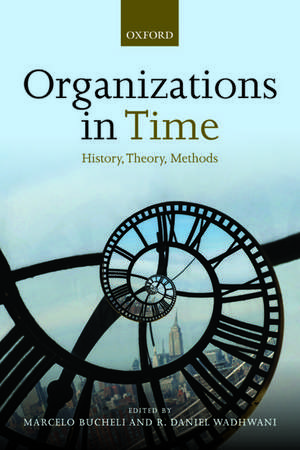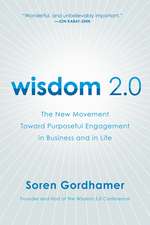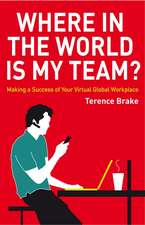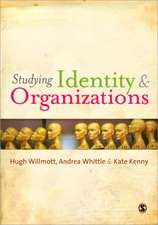Organizations in Time: History, Theory, Methods
Editat de Marcelo Bucheli, R. Daniel Wadhwanien Limba Engleză Paperback – 26 mar 2015
| Toate formatele și edițiile | Preț | Express |
|---|---|---|
| Paperback (1) | 342.35 lei 31-37 zile | |
| OUP OXFORD – 26 mar 2015 | 342.35 lei 31-37 zile | |
| Hardback (1) | 747.39 lei 31-37 zile | |
| OUP OXFORD – 12 dec 2013 | 747.39 lei 31-37 zile |
Preț: 342.35 lei
Preț vechi: 387.95 lei
-12% Nou
Puncte Express: 514
Preț estimativ în valută:
65.52€ • 68.15$ • 54.09£
65.52€ • 68.15$ • 54.09£
Carte tipărită la comandă
Livrare economică 04-10 aprilie
Preluare comenzi: 021 569.72.76
Specificații
ISBN-13: 9780198745396
ISBN-10: 0198745397
Pagini: 352
Dimensiuni: 155 x 232 x 20 mm
Greutate: 0.52 kg
Editura: OUP OXFORD
Colecția OUP Oxford
Locul publicării:Oxford, United Kingdom
ISBN-10: 0198745397
Pagini: 352
Dimensiuni: 155 x 232 x 20 mm
Greutate: 0.52 kg
Editura: OUP OXFORD
Colecția OUP Oxford
Locul publicării:Oxford, United Kingdom
Notă biografică
Marcelo Bucheli is Associate Professor of Business and History at the University of Illinois at Urbana-Champaign. He was a visiting scholar at the Ecole Polytechnique (Paris) in 2013 and held the Harvard-Newcomen fellowship in business history at Harvard Business School in 2004-2005. He earned his PhD in history at Stanford University and has a BS and MA in economics from the Universidad de los Andes (Colombia). He won the 2004 Business History Review best article award, the 2009 Petroleum History Institute best article award, and the 2011 Mira Wilkins award in international business history. R. Daniel Wadhwani is Fletcher Jones Associate Professor of Entrepreneurship and Management at the University of the Pacific. He has held visiting positions at Copenhagen Business School (Denmark), the University of Toulouse (France), and Zhejiang University (China), and was the 2003 Harvard-Newcomen fellow in business history at Harvard Business School. He earned his PhD from University of Pennsylvania and his BA from Yale University, both in history. He has published in leading journals in both business history and management and his work has won the Henrietta Larson Award in business history and the Entrepreneurship Theory and Practice Best Conceptual Paper Award, among other recognitions.
Recenzii
Organizations in Time is a book that organizational theorists and business historians have dreamed about for decades For those doctoral students in management (and their advisers) who want to engage with historical analysis, there is no better source than this insightful volume on the theory, logic, and practice of institutional history. It is not only destined to be a classic but, even more important, a constant, dog-eared reference sitting on the shelf above many desks.
This is a timely book. In a world that is growing ever more complex, we realize the shortcomings of the decontextualized tools associated with mainstream management knowledge and practice. As we stand in the midst of an economic and financial crisis with potentially major consequences, it is clear that we need other lenses to understand and navigate our stormy world. Bringing history back in is one of the most promising paths to follow. What we need, and what this volume provides, is an outline for the future of the past in management and organization studies. It is bound to become a reference for years to come.
An outstanding exploration of the gap between institutional history and organizational and managerial studies of modern business. The contributors deftly probe the philosophical and methodological differences and develop an excellent case for bringing business history and behavioral analyses into mutually beneficial relationships. Should be required reading for scholars and students on both sides of this academic watershed.
provocative and needed state-of-the-art essays on how to combine past and present in the best business history scholarship.
This is a timely book. In a world that is growing ever more complex, we realize the shortcomings of the decontextualized tools associated with mainstream management knowledge and practice. As we stand in the midst of an economic and financial crisis with potentially major consequences, it is clear that we need other lenses to understand and navigate our stormy world. Bringing history back in is one of the most promising paths to follow. What we need, and what this volume provides, is an outline for the future of the past in management and organization studies. It is bound to become a reference for years to come.
An outstanding exploration of the gap between institutional history and organizational and managerial studies of modern business. The contributors deftly probe the philosophical and methodological differences and develop an excellent case for bringing business history and behavioral analyses into mutually beneficial relationships. Should be required reading for scholars and students on both sides of this academic watershed.
provocative and needed state-of-the-art essays on how to combine past and present in the best business history scholarship.














